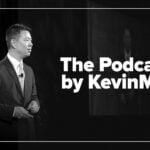The desegregation bus crash
I was nearly killed in a desegregation bus crash. They called it progress, but it felt like degradation. We were children, packed into metal boxes and sent across neighborhoods like test subjects. The crash was more than metal and blood, it was a system shattering itself. I survived, and I have spent the rest of my life making sure no child has to survive reform just to be seen.
The bus had brake failure. I helped evacuate it, chin bleeding profusely, adrenaline masking the damage. I lost consciousness in the nurse’s office, likely from blood loss, a subdural hematoma, or a concussion. The CT scan was negative. It was a concussion, a bad one. And then came the press. Upon discharge from the emergency room, I was surrounded by television and print reporters, hungry for controversy. They wanted a soundbite to inflame the anti-busing agitators. I gave them nothing. “I said something about losing some schoolwork on the bus,” I wrote in my memoir. “Depriving the press of anything controversial from my injury. I learned that day about keeping my mouth shut around the press.” It was my first lesson in strategic silence, a skill I would use again and again, not just with the press, but in boardrooms, hearings, and hospital corridors where speaking too soon could cost everything. That crash did not just injure me. It initiated me.
Richer’s reckoning and the politics of exclusion
As Matthew Richer wrote for the Hoover Institution: “The birthplace of the American Revolution and of the abolitionist movement has become the most segregated city in America.” I won the Franklin Medal as the best student in my class at English High School, founded in 1820. But Franklin’s legacy was not. The medal was a rebuke to the system, a whisper from history saying, “You are seen. You are chosen.”
The reckoning: MMEDIC and the redemption of worthiness
The crash had left its mark, not just on my body, but on my sense of place. I had survived, yes, but survival was not enough. I needed to prove I belonged. I was part of the inaugural Modular Medical Integrated Curriculum (MMEDIC) cohort at Boston University, a program that promised early immersion, accelerated training, and a new kind of physician. Of that first cohort, I became the proof of concept, the one who carried its promise into the field, building systems that reduced disparities and held firm where others fractured.
I was not a typical pre-med. I did not pad my transcript with easy wins. I chose the harder courses, the ones that demanded more than memorization—philosophy, literature, advanced chemistry, physics with calculus. That class was the quiet crucible. Most pre-meds took the algebra-based version, “Baby Physics,” as we called it. I took the one that made you sweat, the one that taught you how the world actually moved, not just how to pass the MCAT. It was not required. It was not strategic. It was a dare to myself. The reckoning came quietly at the end of sophomore year. No fanfare. No warning. Just a review of who had the grit, the growth, and the moral fiber to become physicians. I passed, not because I played the game, but because I did not. I had taken physics with calculus to prove my worthiness—not to them, but to myself.
The apostolic years: Building, rebuilding, and bearing witness
I did not set out to become an apostle, but when systems fail children, someone has to carry the message. Minot was the first true ministry—a forgotten Air Force base, a pediatric clinic in disrepair, and a mandate to “make do.” Instead, we made new. We built a fully operational medical home before the AAP had even coined the term. No blueprint. No budget. Just conviction, improvisation, and grit. It worked, and it lasted.
The Ohio State experience
At Ohio State, I was asked to reconstitute the LEND program, Leadership Education in Neurodevelopmental Disabilities. It had flatlined. We revived it, secured a $2 million grant, and turned it into a national model. The rural clinics came next—Appalachia, forgotten counties, children with no access to developmental care. We did not just show up, we stayed. We trained local providers, built infrastructure, and proved that excellence was not a coastal privilege. The Academic Pediatric Association’s Health Care Delivery Award was not a gift, it was earned. Every mile, every chart, every child. And it proved that disparity is not destiny.
The apostle years: Satcher and the five regions
Then came David Satcher, surgeon general, visionary. He asked for apostles, people willing to eliminate health disparities. I said yes and spread the word to five regions of the nation. We built coalitions, rewired systems, and for a brief, shining moment, we closed gaps that had seemed eternal. It did not last, but it happened. And it proved that disparity is not destiny.
The covenant of care
I did not build systems for prestige. I built them because my father died in the Air Force and there was no organized care. I built them because Kathy, my wife, my partner in purpose, believed in pushing the envelope—me in developmental pediatrics, her in medical technology. We mattered. Our work mattered. We bent the arc toward greater health equity, not by talking about it, but by doing it.
We did it before, and as a nation, we can do it again. First, take out the rubbage. Toss it. Start fresh. Build clean.
“They say you are a man of vision.
A man of vision, you say? Yeah. A hell of a vision.”
— Lonesome Dove, Larry McMurtry
Ronald L. Lindsay is a retired developmental-behavioral pediatrician whose career spanned military service, academic leadership, and public health reform. His professional trajectory, detailed on LinkedIn, reflects a lifelong commitment to advancing neurodevelopmental science and equitable systems of care.
Dr. Lindsay’s research has appeared in leading journals, including The New England Journal of Medicine, The American Journal of Psychiatry, Archives of General Psychiatry, The Journal of Child and Adolescent Psychopharmacology, and Clinical Pediatrics. His NIH-funded work with the Research Units on Pediatric Psychopharmacology (RUPP) Network helped define evidence-based approaches to autism and related developmental disorders.
As medical director of the Nisonger Center at The Ohio State University, he led the Leadership Education in Neurodevelopmental and Related Disabilities (LEND) Program, training future leaders in interdisciplinary care. His Ohio Rural DBP Clinic Initiative earned national recognition for expanding access in underserved counties, and at Madigan Army Medical Center, he founded Joint Base Lewis-McChord (JBLM) CARES, a $10 million autism resource center for military families.
Dr. Lindsay’s scholarship, profiled on ResearchGate and Doximity, extends across seventeen peer-reviewed articles, eleven book chapters, and forty-five invited lectures, as well as contributions to major academic publishers such as Oxford University Press and McGraw-Hill. His memoir-in-progress, The Quiet Architect, threads testimony, resistance, and civic duty into a reckoning with systems retreat.



















![AI censorship threatens the lifeline of caregiver support [PODCAST]](https://kevinmd.com/wp-content/uploads/Design-2-190x100.jpg)
